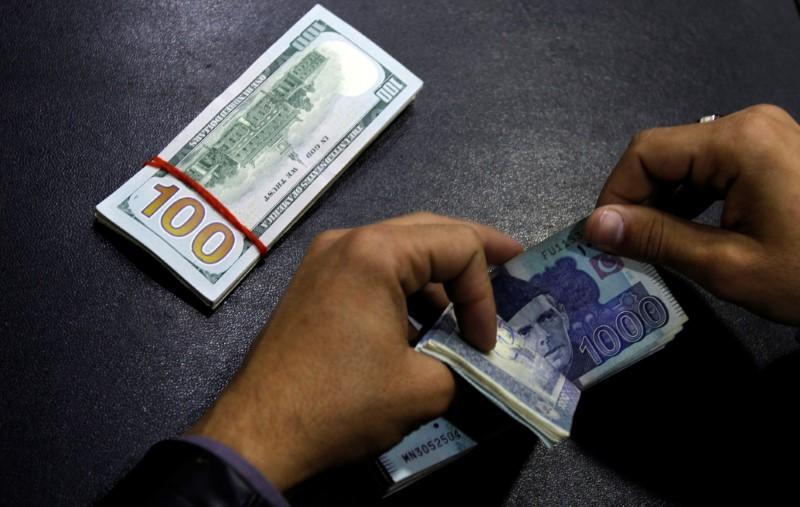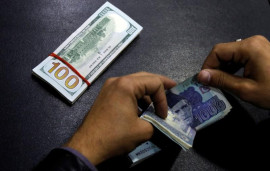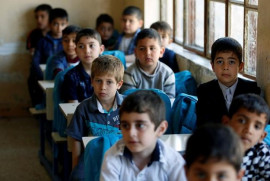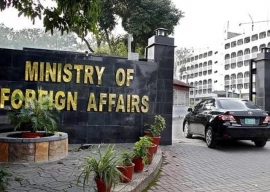
The directive came as the bureaucracy fails to finalise a viable action plan to remove bottlenecks to unlock the much-needed stimulus funds.
Over a month after The Express Tribune reported that $21.6 billion foreign economic assistance remained undisbursed for one reason or the other, the prime minister took a briefing from the Ministry of Economic Affairs about the fate of the projects.
The delay in the completion of the development schemes is not only negating the intended economic benefits the projects are supposed to accrue, it is also tantamount to wastage of the cheap, long-term development foreign loans.
The prime minister directed the ministry to give him periodic briefings regarding progress on the stuck-up projects, according to a handout issued by the PM Office.
Imran instructed the ministry to seek the PM’s Office help to address the issues that were causing delays in the completion of the projects, it added.
Around $21.6 billion worth of foreign economic assistance remained undisbursed due not only to long completion period of the projects, but also because of systemic inefficiencies, according to an Express Tribune report published last month.
The prime minister was informed that the amount against the ongoing projects was roughly $14 billion. The remaining balance was on account of new projects and foreign grants.
Moreover, out of $14 billion stuck-up loans, nearly $7.5 billion worth of projects were facing serious problems.
“Timely completion of development projects will propel the economic growth and create job opportunities for the younger generation,” said the prime minister.
Federal Minister for Economic Affairs Hammad Azhar was not available for comments.
Pakistan can swiftly mobilise at least one-fourth of the undisbursed money by simplifying its approval processes, removing bureaucratic hurdles and fast-tracking the contract award process. However, the bureaucracy has not been able to address those issues.
A committee set up to address those issues has not yet been able to finalise its recommendations despite holding about half a dozen meetings.
The prime minister was assured that the committee would meet next week to approve the plan that would help shorten the approval processes and address the issues, according to government officials.
They said the committee has drafted guidelines for projects selection, their fast-track approvals and project implementation through dedicated project management units in the executing ministries.
Under the existing procedures, the Ministry of Planning is required to complete the approval process in one-and-a-half months.
But it hardly approves any project within the timeline, except where a project is either pushed by the PM Office or any other influential group.
At present, the foreign-funded projects are either proposed by the international lenders or picked up on the basis of political priorities.
Although the Ministry of Economic Affairs serves as a window between the foreign lenders and local borrowers, it does not have the power to ensure timely completion of the projects.
The borrowing cost of the loans was in the range of 1.25% to 3% and the loans will be returned in 19 to 30 years. This significantly reduces the risk of rollover and refinancing.
But disbursements require progress on development schemes. The majority of multilateral lenders imposed commitment charges on Pakistan for not utilising the outstanding balance that puts an extra burden on the exchequer.
The commitment charges an amount ranges between 0.15% to 0.25% on undisbursed loans, depending upon the lending agency.
For instance, the World Bank approved $588 million loan for the 4,160 megawatts Dasu hydropower project in June 2014. The bank management this month approved the restructuring of the project and extended the deadline for the utilisation of funds for land acquisition and resettlement until May 20, 2021 on the government’s request.
The deadline to use the funds lapsed this month due to a dispute over the cost of land acquisition.
The land acquisition process has been facing delays because of lack of cadastral data in the project area and difficulty in reaching agreement on compensation rates, according to the World Bank. The bureaucracy took five years to resolve the land dispute.
The bank documents stated that with the decisions on revised rates, it is expected that the land acquisition will be completed within the next 18 months.
Similarly, the Asian Infrastructure Investment Bank had also approved $300 million loan for Tarbela hydropower project in September 2016.
“However, its disbursement has not begun yet,” said Najeeb Haider, Manager Investment Operations Department of the AIIB on Wednesday.











































COMMENTS
Comments are moderated and generally will be posted if they are on-topic and not abusive.
For more information, please see our Comments FAQ